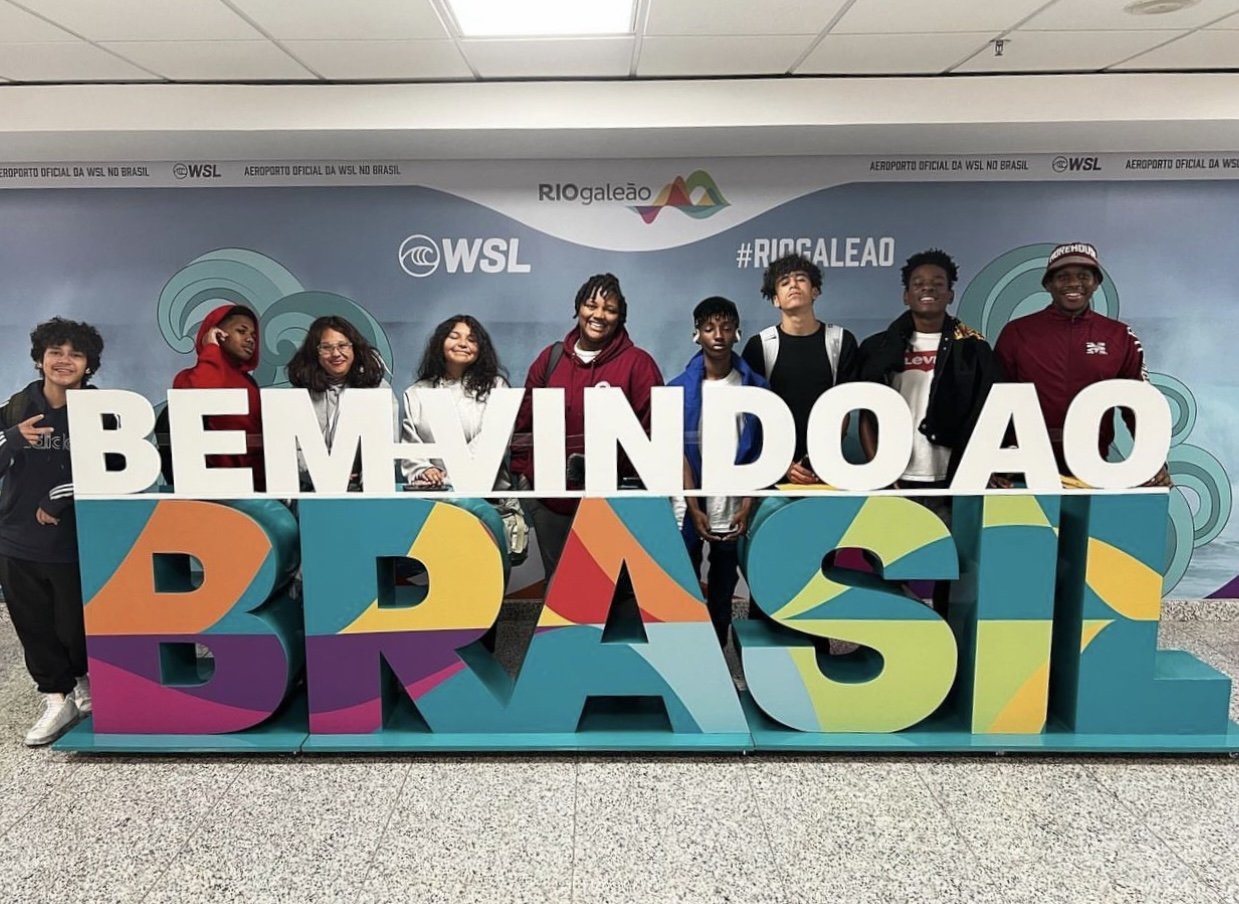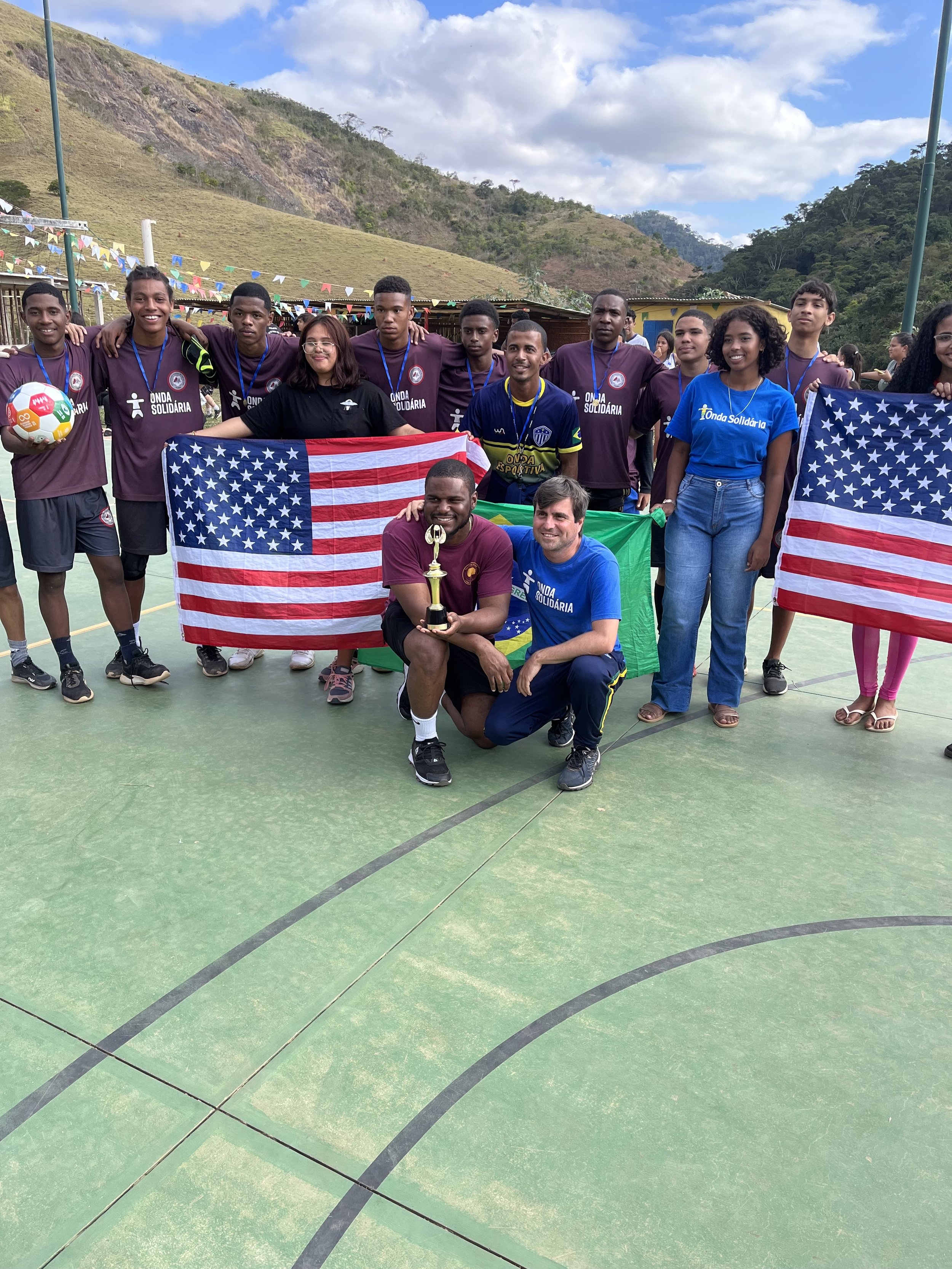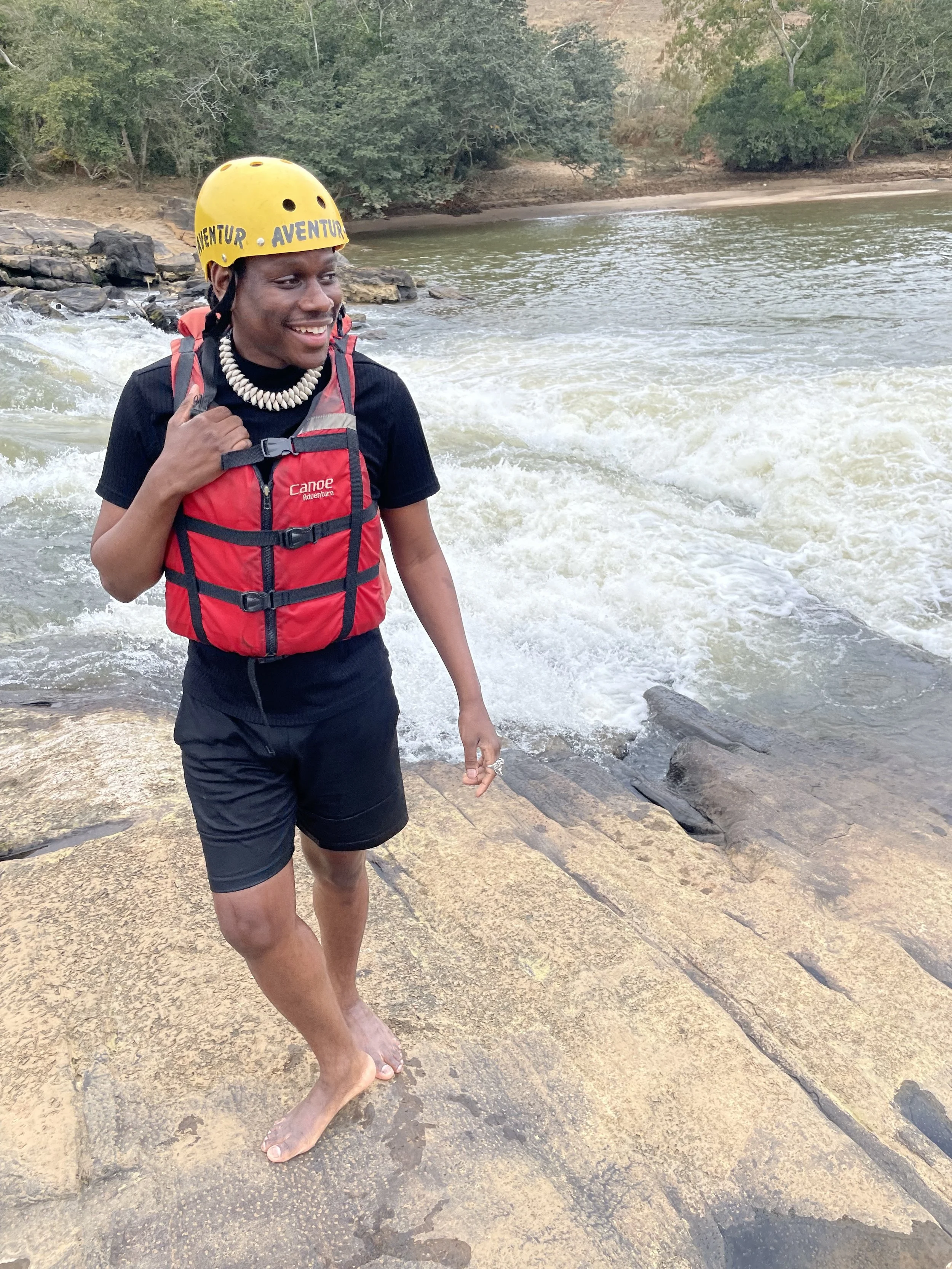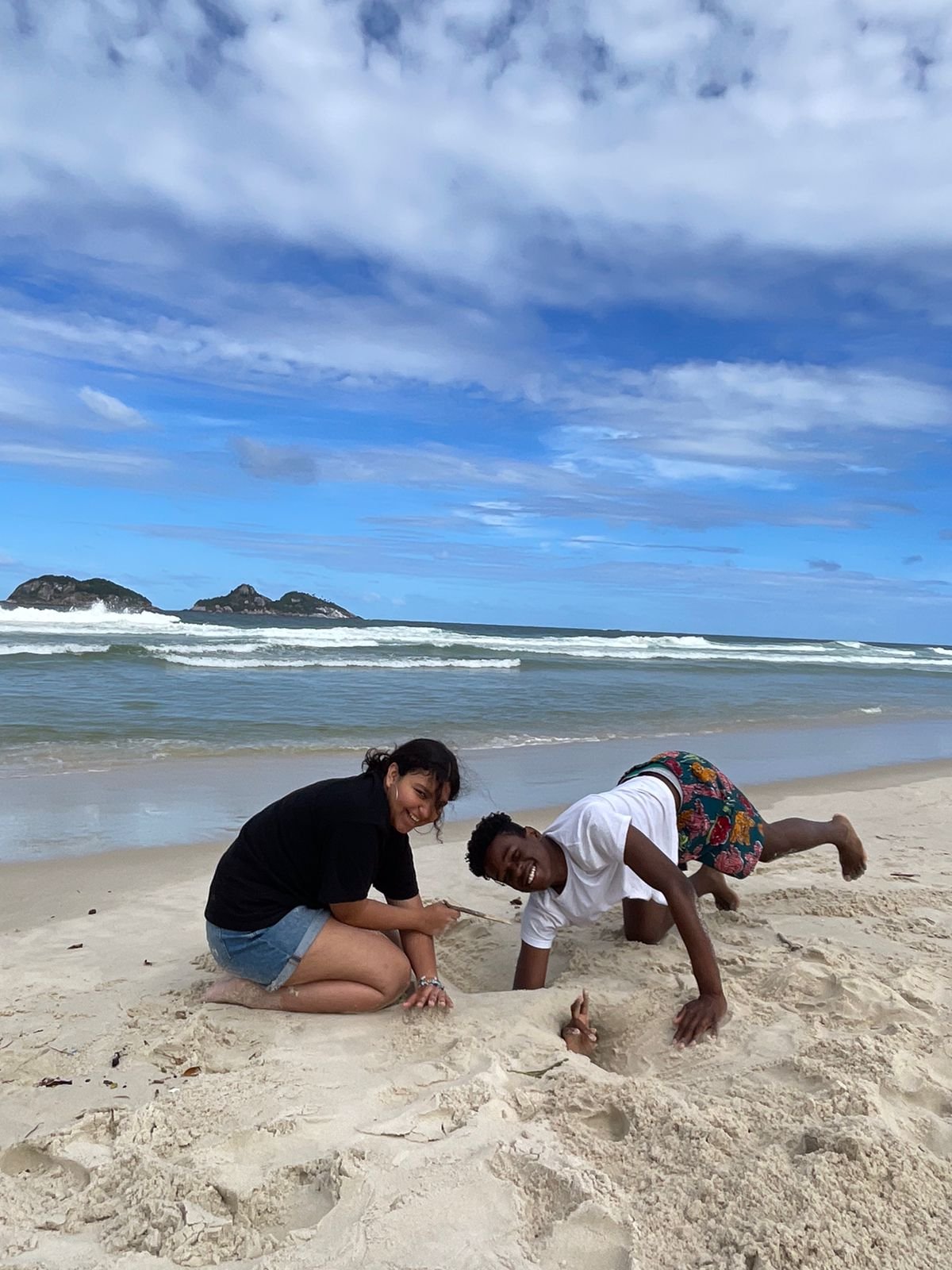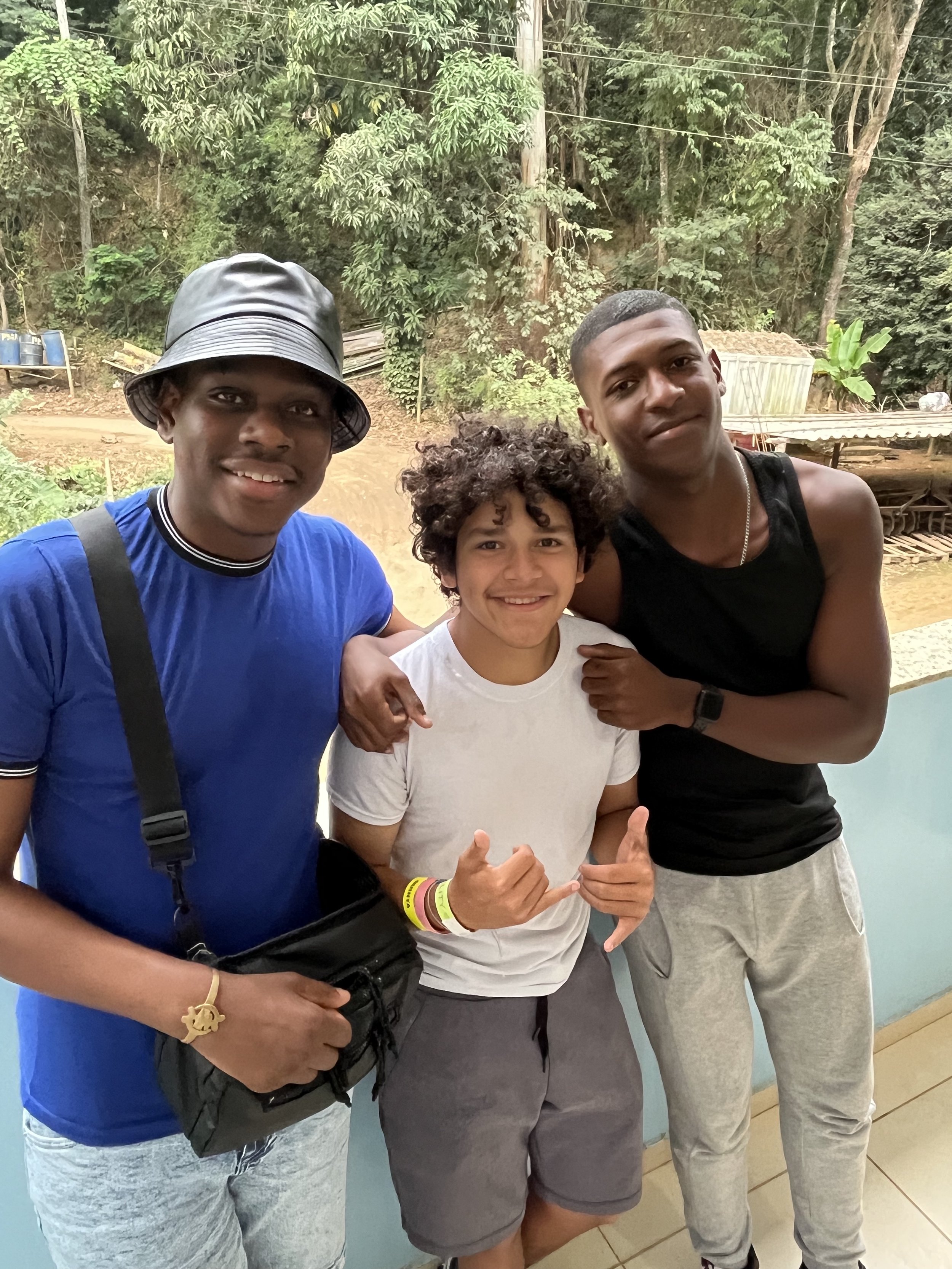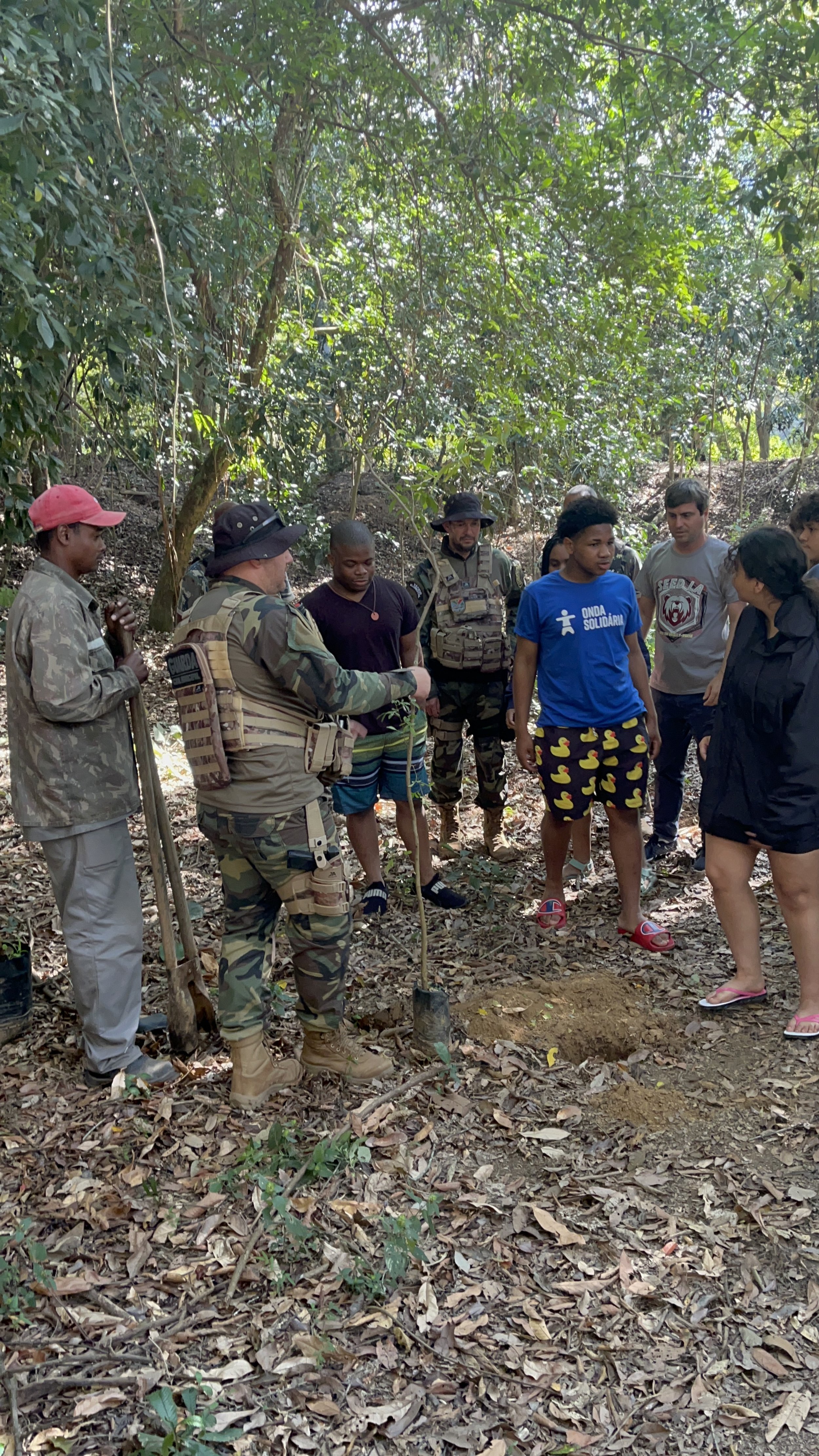At SEED, exposure opportunities are an essential component of learning. Through our summer travel programs, students immerse themselves in different cultures and build identity as global citizens. Thanks to a partnership made possible by SEED champion and board member Vasco Fernandes with Onda Solidaria, SEED students have been traveling to Brazil since 2017. (Onda Solidaria is a Brazilian nonprofit that provides learning and recreation opportunities for young people in the favelas of Rio de Janeiro and the village of Santana do Deserto.)
This July, students and faculty from SEED DC, SEED MD, and SEED LA embarked on an eye-opening adventure, where they traveled from city to country, made connections with their Brazilian peers, and learned about sustainability and community building. Victor Onuchukwu, a recent SEED MD graduate, (SEED MD ’23, Loyola University Maryland ’27), and Cordell “Amaru” Mimms (SEED DC ’11, Morehouse College ’16), SEED DC graduate and SEED LA manager of expanded learning and arts programs, joined 19 other SEED community members (faculty, students, and graduates) on this ten-day excursion.
Mr. Mimms knows personally how travel can shape a young person’s identity and future path. As a ninth-grader at SEED DC, he went to Greece with the SEED DC Greek Scholars program. Since that first study abroad program, he has traveled the world as an artist and an educator, leading youth programs in Hong Kong and Honduras. Now guiding the next generation of SEED students, he says, “Having this opportunity was just awesome. It feels like my own SEED journey has come full circle.”
Mr. Mimms and his colleagues led students on several experiential learning excursions while in Brazil, one of which included meeting a group of conservationists. “They talked about the history of the lagoon, the wildlife, and how they had restored the quality of the lagoon’s water and brought back indigenous flora and fauna. We also met fashion designers who were making recycled clothing. They showed us how sustainability can be a way of life,” said Mr. Mimms. The practical environmentalism left an impression on students. “The way people in Brazil live intertwined with nature was an eye-opening experience for me,” said Victor.
SEED students also had multiple opportunities to engage with Brazilian students at Onda Solidaria community centers. They played sports, shared music, danced, and used translators, phones, and phrases that they picked up along the way to communicate with each other. Specifically, they alternated teaching each other dances from traditional to contemporary to capoeira. Victor was moved during these and other performances such as African drumming because of how they identified with his roots as a person of African descent. As someone who grew up in Nigeria until the age of eight before moving to the United States with his parents, he said, “Seeing a part of my culture and how it connected with my Brazilian peers really resonated with me. I was interested in learning more from them and them from me. They were some of the nicest kids”.
These opportunities to learn from and build connections with people across the world made for an enriching learning opportunity. As SEED LA Head of School Jubria Lewis said, “It shows students that the global society is available to them—we want them to think about their global footprint and to consider that as they plan for their futures in college and beyond.”
It also enables our students to develop a lens for cultural awareness and acceptance. “For Black and brown people, for children of the diaspora, we have way more in common than we do differences. I saw that what happens in Southeast DC happens in Southeast Asia, Brazil, and Honduras. People there were going through the same struggles as some of my family members. Seeing this shared experience through travel made me feel less alone and less isolated—and reminds me that we have a global responsibility.” said Mr. Mimms.

